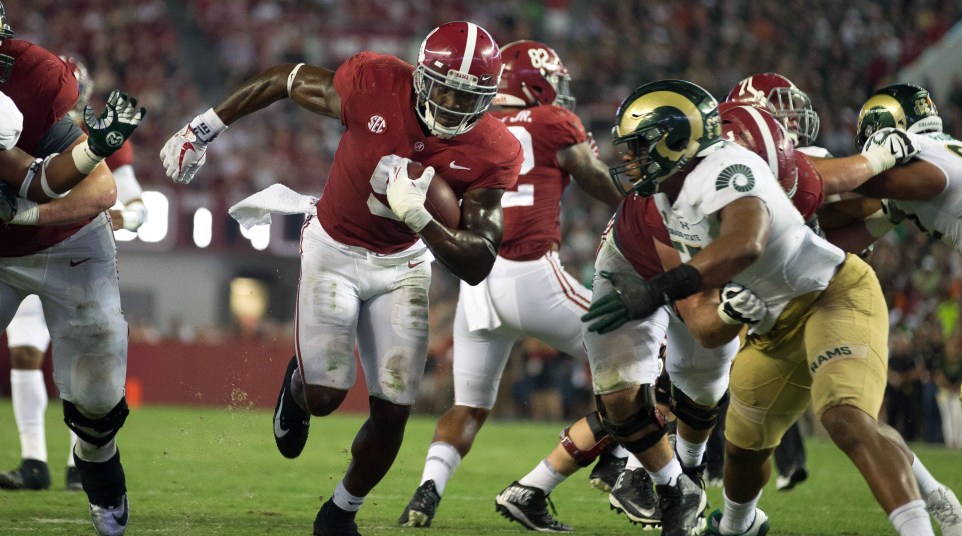
Is Alabama's running back rotation working? Or should the Tide switch it up against Vandy?
Alabama’s 3-0 start would have some people thinking this year will be more of the same for the Tide — an automatic bid to the SEC Championship Game and a spot in the Playoff. That would also mean that they should have an easy time with Vanderbilt, who they play this weekend in Nashville. Well, not so fast, my friend.
After a strong defensive performance against Florida State in the opening game of the season, the Tide haven’t been overly impressive on that side of the ball. As things sit right now, they have the seventh-ranked defense in the SEC, a huge drop off from the top-ranked defense they’ve finished with in eight of the past nine years.
Vanderbilt, on the other hand, currently has the top-ranked defense in the SEC. Its run defense hasn’t been the main contributor, however — it sits at No. 8 in the conference, allowing 103 yards per game. This is where Alabama can exploit the Commodores.
Traditionally, the Tide have fielded one of the conference’s best run games, and this season has been no different. Alabama, with the help of dual-threat quarterback Jalen Hurts, has averaged 239 yards rushing per game — third best in the SEC.
Now, of the 717 rushing yards they’ve gained, Hurts has accounted for 312 — or 43.5 percent. While the running backs have averaged a solid 4.82 yards per carry, their role in the run game has left a lot to be desired up to this point.
A lot of that can be attributed to two things: 1) the offensive line needing to continue to jell after replacing two starters from last season and 2) the lack of a featured, workhorse running back so far.
The offensive line should continue to get better as the season progresses. Matt Womack and Lester Cotton have already shown growth through the first three games. Turning that growth into more consistent production — in both the running and passing games — would allow this group to excel down the stretch.
Heading into the season, everyone knew that Alabama’s stable of running backs was deeper than that of any other team in the country, but that depth could actually be hurting the offense’s ability to get into a rhythm.
To combat this, new offensive coordinator Brian Daboll has tried to keep rotation during drives to a minimum, but the results have still been underwhelming. As was previously mentioned, the backs are producing on a per-carry basis, but look at how the workload is being distributed:
- Jalen Hurts – 12 carries per game
- Bo Scarbrough – 11 carries per game
- Damien Harris – 8.7 carries per game
- Najee Harris – 6.7 carries per game
That doesn’t even include Josh Jacobs, who saw his first action in Week 3 against Colorado State. As he continues to get back to full health, he’ll almost certainly spread the work even thinner.
I think Alabama’s identity on offense has been compromised to a certain degree, but it remains to be seen whether the Tide will turn over a majority of the workload to one or two running backs. That wouldn’t be popular among those who would have to take a seat, but the offense might not have a choice.
Alabama needs to get back to its usual ability to run the football at will. The evolution of the offense under Lane Kiffin, and now Daboll can absolutely still exist, but the Tide has built their dynasty on defense and the ability to take the will away from opposing defenses with a dominant run game.
Vanderbilt defensive lineman Nifae Lealao already seems to think the Commodores’ defense can handle the Crimson Tide offense, so it’ll be interesting to see how it all plays out come 3:30 ET on Saturday.
